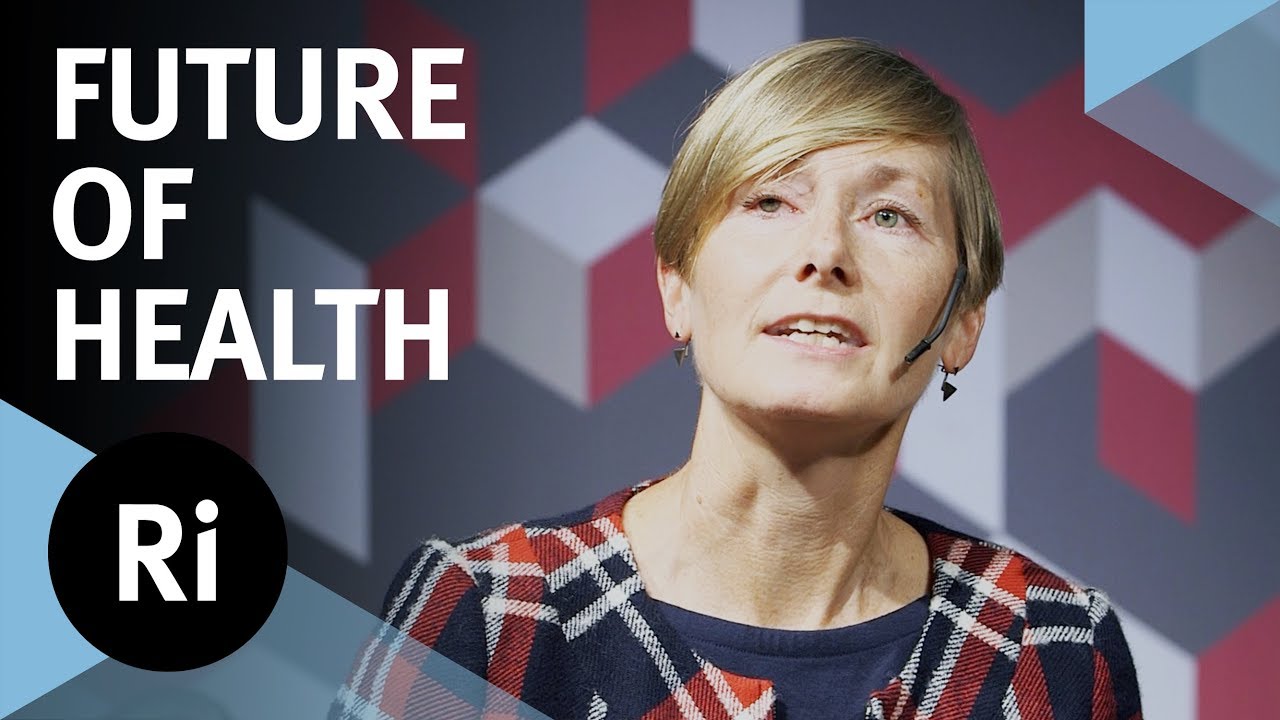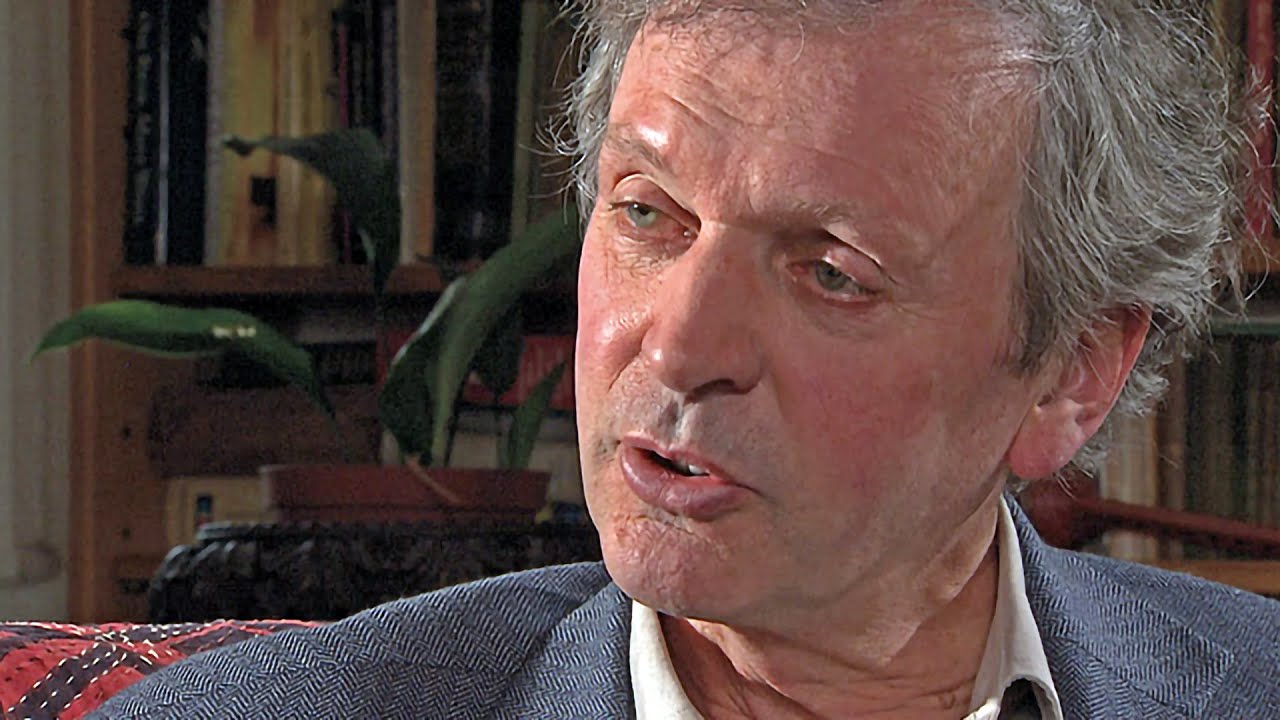The Royal Institution
What does ‘good health’ actually mean?
Subscribe for regular science videos: http://bit.ly/RiSubscRibe
This event was supported by Roche and Medtronic.
Beate Kampmann joined the LSHTM from Imperial College London in May 2018 and is the Director of The Vaccine Centre @ LSHTM. She trained as a clinician-scientist in Paediatric Infectious Diseases in Germany, UK, France, USA and South Africa. Beate holds a Chair in Paediatric Infection & Immunity and was appointed as the Scientific Director (Theme Leader) for Vaccinology research at the MRC Unit The Gambia in July 2010. She directs a comprehensive childhood infection research program both in the UK and sub-saharan Africa.
Nick Crabb is Programme Director, Scientific Affairs at NICE the National Institute for Health and Care Excellence.
Dave Dawes is Commercial Director at Future Care Capital. He joined FCC from Community Health Innovation CIC where he was the Director of Possibilities. Dave is a nurse, a serial social entrepreneur and has more than 25 years’ experience in nursing and health. He is also a Board Member of Social Enterprise UK and the Royal College of Nursing as well as a lecturer at Manchester Metropolitan University. Dave has previously worked for Nurse First CIC and Entreprenurses CIC and was a former NHS Chief Executive.
The chair for the evening is freelance health journalist Jacqui Thornton.
This panel discussion was filmed in the Ri on 23 October 2019.
—
A very special thank you to our Patreon supporters who help make these videos happen, especially:
Andrew McGhee, Anna-Chiara Bellini, Dave Ostler, David Crowner, David Lindo, David Schick, Erik Shepherd, Greg Nagel, Jan Bannister, Joe Godenzi, John C. Vesey, Kellas Lowery, Lasse T. Stendan, Lester Su, Matt Townsend, Osian Gwyn Williams, Paul Brown, Radu Tizu, Rebecca Pan, Robert Hillier, Robert Reinecke and Roger Baker.
—
The Ri is on Patreon: https://www.patreon.com/TheRoyalInstitution
and Twitter: http://twitter.com/ri_science
and Facebook: http://www.facebook.com/royalinstitution
and Tumblr: http://ri-science.tumblr.com/
Our editorial policy: http://www.rigb.org/home/editorial-policy
Subscribe for the latest science videos: http://bit.ly/RiNewsletter
Source



"It is no measure of health to be well adjusted to a profoundly sick society." – Jiddu Krishnamurti
Here's an idea I've had for a while. Should we give pensioners testosterone?
The long term health affects can't be any worse than what we'd normal expect of old people.
Yet the short term muscle growth, white blood cell increase should give older people a better quality of life.
Would be so good if there was a 5 minute précis version of this as well as this full version. 😞
It means you will need to be a millionaire to afford the 1.8 million one pill cure bloomberg magazine advertises for lymphoma….no $$?… Suffer and go broke doing it…because they love you sooooo much…hahaha
Blah, blah, blah nothing good for the common man but for the patience that let them experiment. "Transparent as much as possible," "cost effectiveness" and "how well does the medicine work," "standard of care," …nothing about real health but healthcare, medicine and economy.
Partnership @70 is more effective than giving up smoking is eye-opening to say the least!
NICE should have a better representative who can’ relate to the audience, in my opinion!
I dream a dream
Good health means keeping Government out of it.
why are there commercials here? is this a private enterprise now?
NICE is corrupted indirectly by charities funded by pharmaceutical companies.
Should a nurse presenter who is clearly obese be speaking about what is health?
I think the very idea of taxing people on their decision making is fatally flawed. From neuroscientific research we know that people are more capable and likely to make decisions in their best interest when they are empowered to do so financially, physically and mentally. The perception that people act in their own best interest only rarely is actually a notion that is aged and incorrect and really it is shameful that the Royal Institute panel is not more informed on this topic and making mention of it in this context. The neuroscientific research clearly shows that people do the best job they know how to, and are materially able to do so. The great flaw of our approach historically has been exactly the amount of obstacles we kept placing on people to get the best possible care and support available to mankind. Naturally when looking at SCIENCE it stands to reason that the best thing for society to do is make room for people to have the resources to make even better decisions by offering them support and care with as few restrictions as possible to access.
Several of these comments are emblematic of the sort of lack of empathy and insight into the populations these organisations serve. Their lack of sensitivity and connection with the common man is the real challenge their organisations face. If they were more connected to the populations they serve many of these supposedly complicated and challenging issues would fall away as they began to realise they are addressing entirely the wrong issues.
the future of good health in England, at least, will mean she either rids herself of the tory scourge or her citizens prepare for good health being the sole preserve of the wealthiest . A most unfortunate and tragic truth.
Sick peeps want help not time to die B.S.
no idea how they managed to roll out CBT to the nation given there is little evidence for any psychological therapies